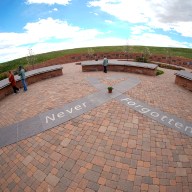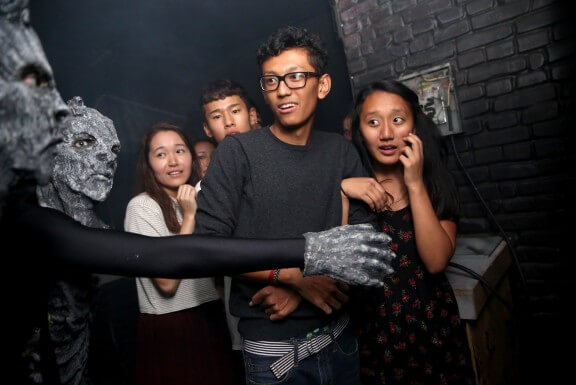 Lola Creton plays an abused victim in Claire Denis’ “Bastards.”
Lola Creton plays an abused victim in Claire Denis’ “Bastards.”
Credit: Camille De Chenay
‘Bastards’
4 Globes
In interviews, filmmaker Claire Denis (“Friday Night,” “White Material”) has insisted her latest isn’t an angry film — despite being called “Bastards,” and despite being a grim and hopeless look at class warfare. One of Denis’ usual mysterious openings offers the body of a suicide victim and a young woman (Lela Creton) walking zombie-like through the streets, naked save for a pair of high heels, the victim of an act whose details we won’t know for sure till the final seconds. It eventually becomes clear she’s the niece of Marco (Vincent Lindon), a ship captain who has dropped out of society. He comes back to the civilized world, sort of, to enact a murky kind of revenge upon her likely assailant: Edouard (Michel Subor), a silver-haired businessman whose permanently contented smile clearly masks a history of skeeziness. Using his limited savings, Marco moves into the apartment below Eduoard’s mistress, Raphaelle (Chiara Mastroianni), who he winds up romancing.
It’s never clear what Marco’s plan is, or whether his feelings for Raphaelle are sincere. It’s also not clear if the title describes only Edouard or everybody. Marco is not as guilty as Edouard, but his conscience isn’t clean, and nor is Raphaelle’s, who has a young son with Edouard to consider. Denis is, among other things, a master of mood, and the mood here is as her grimmest since “Trouble Every Day.” Even when it takes place during the day — which is half the length — it always feels like a dark night of the soul, a feeling heightened by a score by Denis regulars Tindersticks that strikes a balance between seductive and sinister. Though working as usual with cinematographer Agnes Godard, the look swaps grainy film for the crispness of digital video. No matter how ambiguous the actions, the horrors on screen — building to a dread-filled final moment — are always painfully clear.
‘The Square’
3 Globes
The grassroots Egyptian revolution that began in 2011 is still going, so there may one day be a distanced, purely expository (and frankly pretty dry) documentary summation of how the country was changed (or not). That doesn’t make “The Square” any less informative, and it may make it even more vital. It definitely makes for more exciting viewing. Director Jehane Noujaim (“Control Room”) employs footage shot from within the protests, from cameras to phones to whatever else. There’s no context, no clue who’s shooting what, and little sense what specifically we’re seeing at every step. The idea is to bottle up the excitement and horror of a movement as it builds up steam, seems to succeed, then leads to unforeseen tragedies. It honestly could use some more context, and maybe a wider perspective. Hanging to a few “characters” (among them actor Khalid Abdalla, who starred in the movie version of “The Kite Runner” before being swept up in revolution) winds up feeling limiting, too consciously trying to provide us with a cross-section of participants. Taken as pure sensation, though — for an event that has yet to see closure — it’s tough to beat.
















